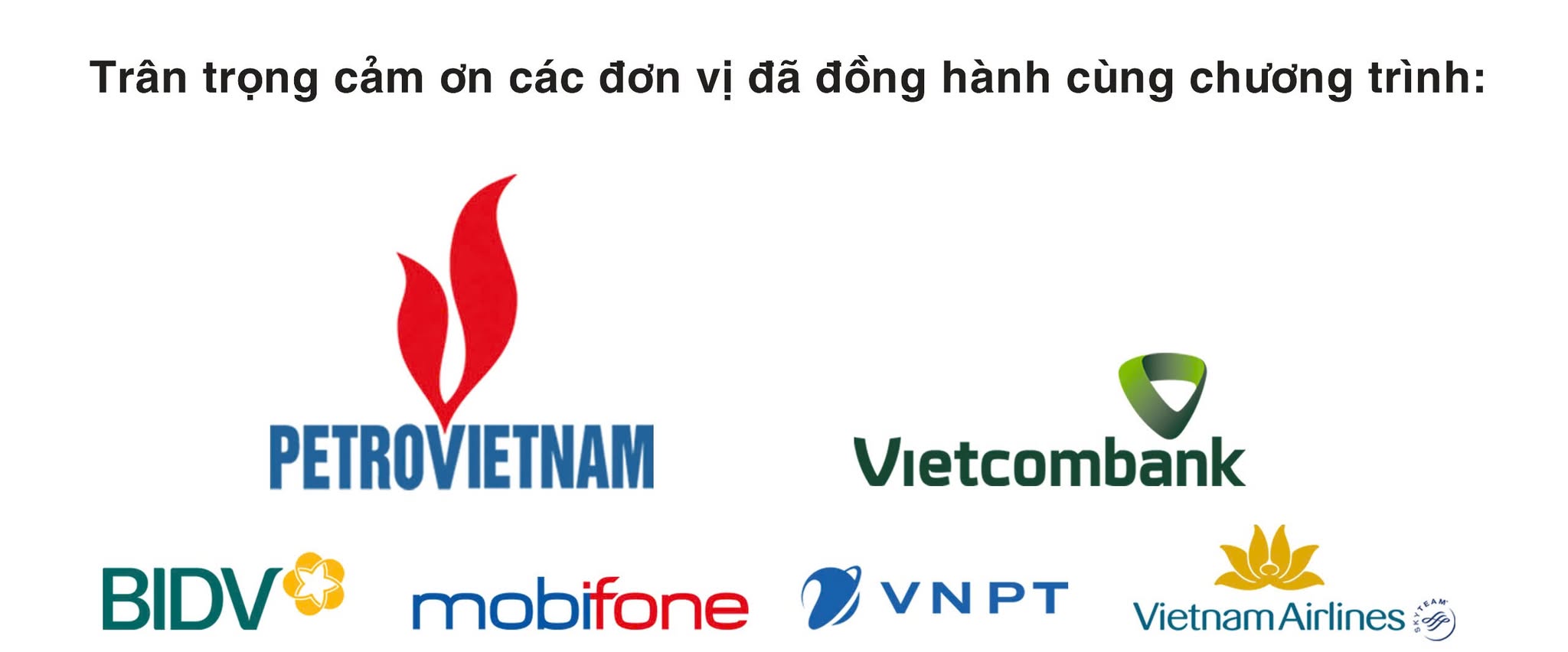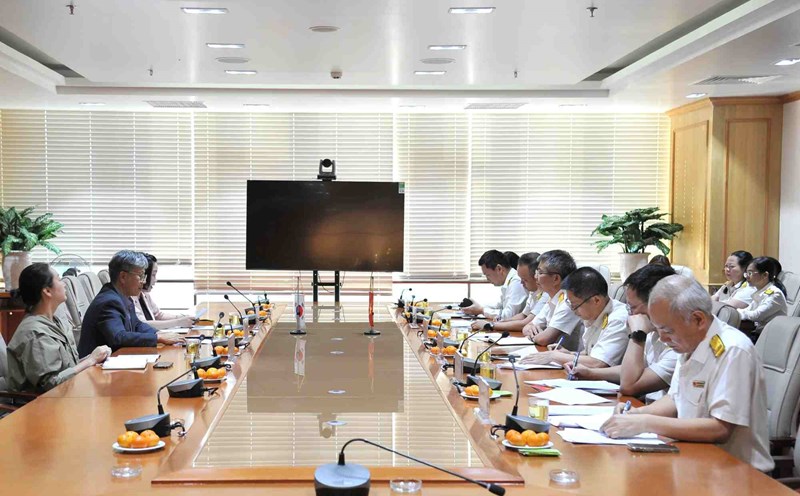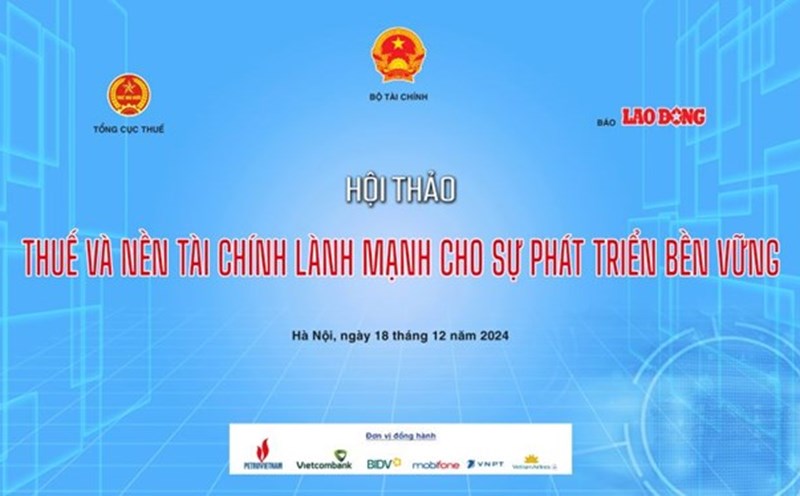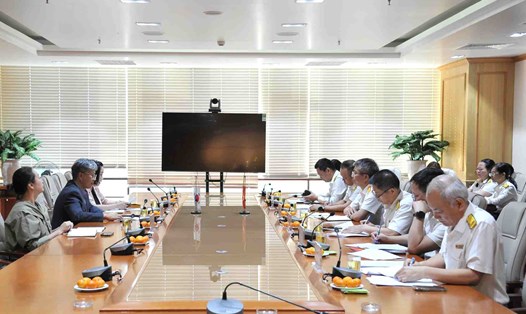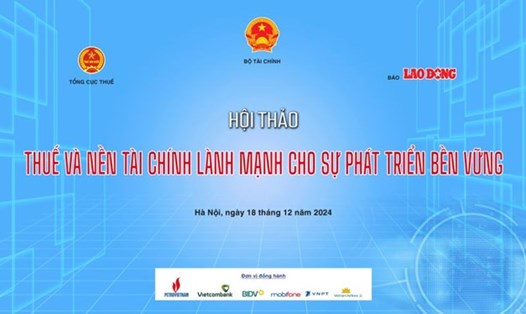The tax policy system is increasingly improved.
In her speech sent to the Workshop, Ms. Nguyen Thi Cuc said that tax is the main tool of the State to mobilize a part of the material wealth of society into the State budget, implemented through the system of tax law policies and is the State's macro-regulatory tool for the economy and social life of the country.
Having a suitable tax policy system that meets the regulatory requirements of the State budget and meets and promotes aggregate demand, supporting the development of the national economy is an important goal and task in the process of reforming and perfecting tax policies. Otherwise, it will cause stagnation, obstruction, and reduce the country's financial resources.
In addition, the completion of the tax policy system and management mechanism must also ensure the important requirement of handling difficulties and obstacles, "untying bottlenecks" for enterprises, businessmen, taxpayers and creating conditions for taxpayers to fulfill their tax obligations (as stipulated in the Constitution) in the most favorable way, while improving compliance, efficiency and effectiveness of tax work.
Sharing with Lao Dong, Ms. Nguyen Thi Cuc - President of Vietnam Tax Consulting Association - VIAC Arbitrator - Former Deputy General Director of the General Department of Taxation said that in recent years, the tax policy system has been increasingly improved according to the principles of fairness, unity, synchronization, transparency, and ease of implementation.
Improve the investment environment, encourage production and business development, foster growth in state budget revenue; at the same time ensure tariff reduction according to the roadmap and proactively integrate into the regional international economy.
Along with the improvement of policy institutions, the tax management mechanism has also been gradually innovated towards modernity, effectiveness, efficiency... to meet the transformation of the digital economy and global e-commerce trends.
However, according to Ms. Nguyen Thi Cuc, in the process of development and transformation, the economy is increasingly diversified, many new forms of business are emerging; the rapid increase of digitalization, globalization... leads to a number of old regulations in legal documents related to taxes, which are no longer suitable and outdated.
There are gaps in the law's regulation of new business forms and models, or difficulties in law enforcement for enterprises.
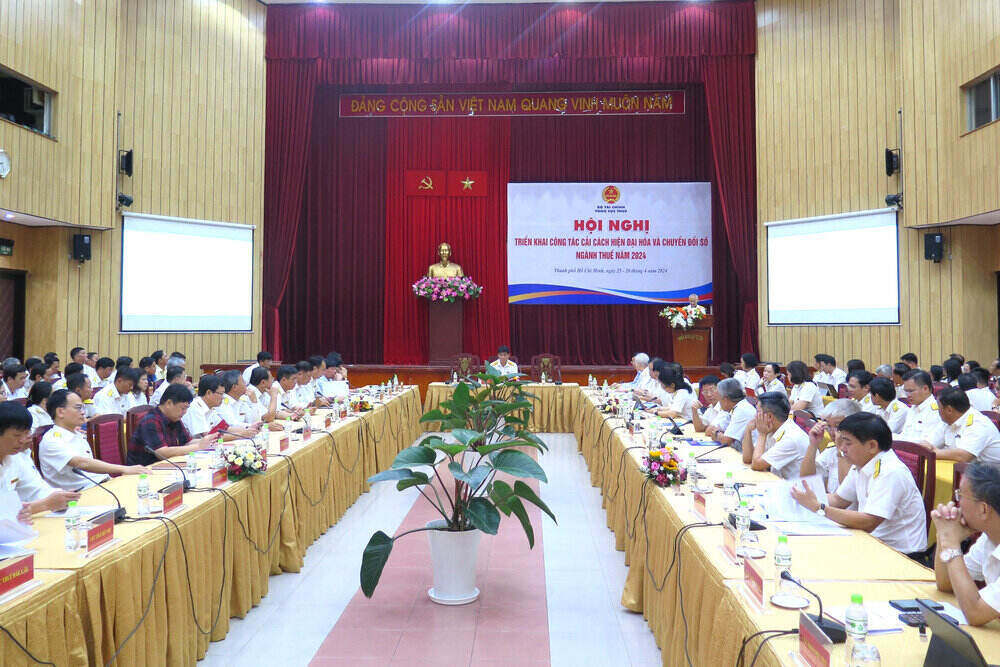
Some policy regulations are not really clear, consistent, or consistent among taxes; some land revenues such as land rent differentials still have gaps.
The regulation level of personal income tax (PIT) is still much different from that of corporate income tax (CIT), the gap between tax rates is too narrow leading to high taxes, which is also one of the reasons for the decrease in taxpayer compliance...
Taxable and non-taxable personal income are not clear, transparent and equal...
For deduction and temporary payment of personal income tax, especially for occasional income under 2 million VND/time, the paying party does not have to perform the obligation to deduct tax at source.
Changes in policies and instructions for tax declaration and payment for e-commerce businesses are not timely, consistent, and difficult for taxpayers to implement.
Taxpayers, including multinational corporations and individual businesses, seek various tricks and measures to exploit policy loopholes to avoid taxes, reduce the amount of taxes payable, and even evade taxes.
This situation not only causes loss of revenue for the state budget, but also causes unfairness and inequality in tax payment obligations for business organizations and individuals and business forms.
Typical examples include fraudulent invoices and documents to falsely refund value-added tax (VAT), increase corporate income tax costs, reduce taxable income through transfer pricing, and transfer taxable profits in Vietnam abroad.
Businesses still have many difficulties in tax refunds.
Ms. Nguyen Thi Cuc also said that, at two recent tax and customs dialogue conferences, businesses still face many difficulties in VAT refunds: For example, input scrap collected from steel production, Lioa speakers; wood for exported wood products, determining VAT of agricultural products, seafood;...
Ms. Cuc said that there should be a clear policy mechanism to handle difficulties and obstacles for businesses, ensuring timely VAT refunds and minimizing risks for both businesses and tax officers on duty.
Accordingly, in case an enterprise does not collude with other enterprises and the goods meet the conditions for contracts and payments, the tax authority is not responsible for the origin of the goods contracts of enterprises eligible for tax refunds.
In case the inspection detects errors that are not the responsibility of the declaring enterprise or the tax officer, the enterprise will not be subject to tax penalties, and the tax officer will not be held responsible for performing official duties.
In order to immediately handle difficulties for enterprises, tax authorities will base on risk management measures to temporarily refund VAT at a certain rate for enterprises. Collect current preferential corporate income tax policies into the revised Corporate Income Tax Law.
Tax incentive policies need to be clear, transparent, specific, highly feasible, and not "suspended".
Tax authorities also need to study and amend in the direction of adjusting the quantity and tax rates in accordance with taxable income, in accordance with the nature of each type of income, creating simple conditions for personal income tax settlement for both taxpayers and tax authorities, preventing tax evasion and avoidance;
Research and amend regulations on tax exemption and reduction in accordance with the socio-economic context of the country in each period and international practices, especially exempting personal income tax in the case of a sole proprietorship...
Regarding the production and business activities of enterprises, this expert said that it is necessary to mobilize and create financial resources for the State budget. With the direction of the Government and the Ministry of Finance, the tax sector is considered one of the leading units implementing the application of information technology and artificial intelligence in effective administrative procedure management reform.
The drastic registration, declaration, payment of taxes, electronic tax refunds, and implementation of electronic invoices have marked a turning point and effective reform of the tax authority: through saving costs and time for taxpayers and the whole society.
"Tax authorities need to be strengthened and stabilized in terms of resource organization to continue implementing tax management reforms, supporting taxpayers to remove bottlenecks, creating more favorable conditions for taxpayers in fulfilling their tax obligations, enhancing taxpayer compliance and the efficiency of tax authorities" - Chairman of the Vietnam Tax Consultants Association - VIAC Arbitrator emphasized.
